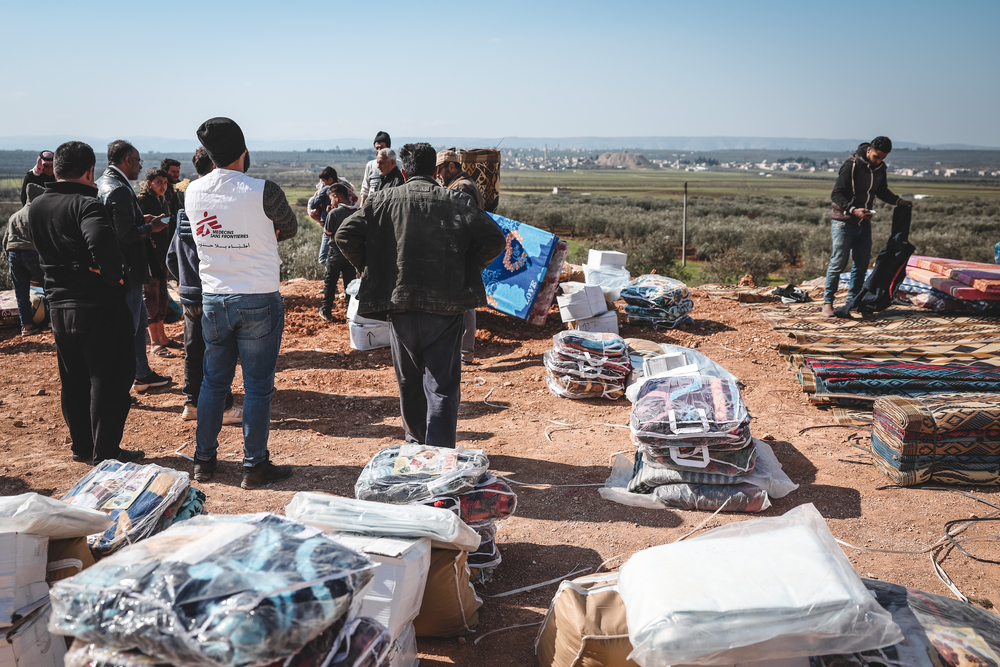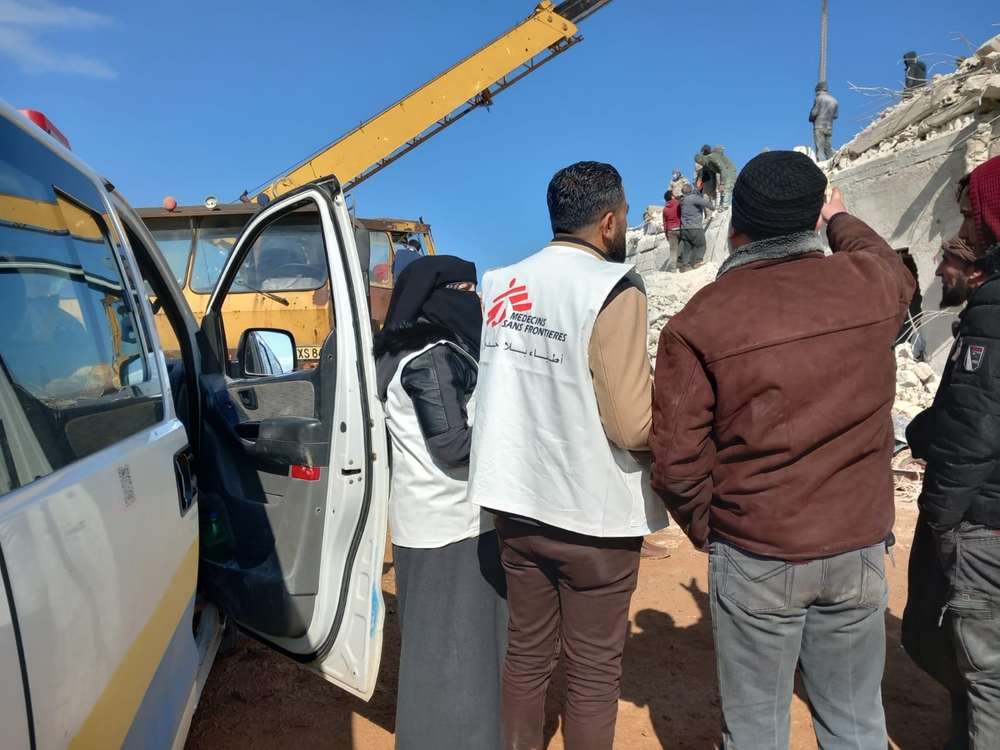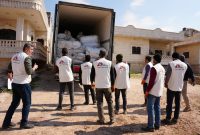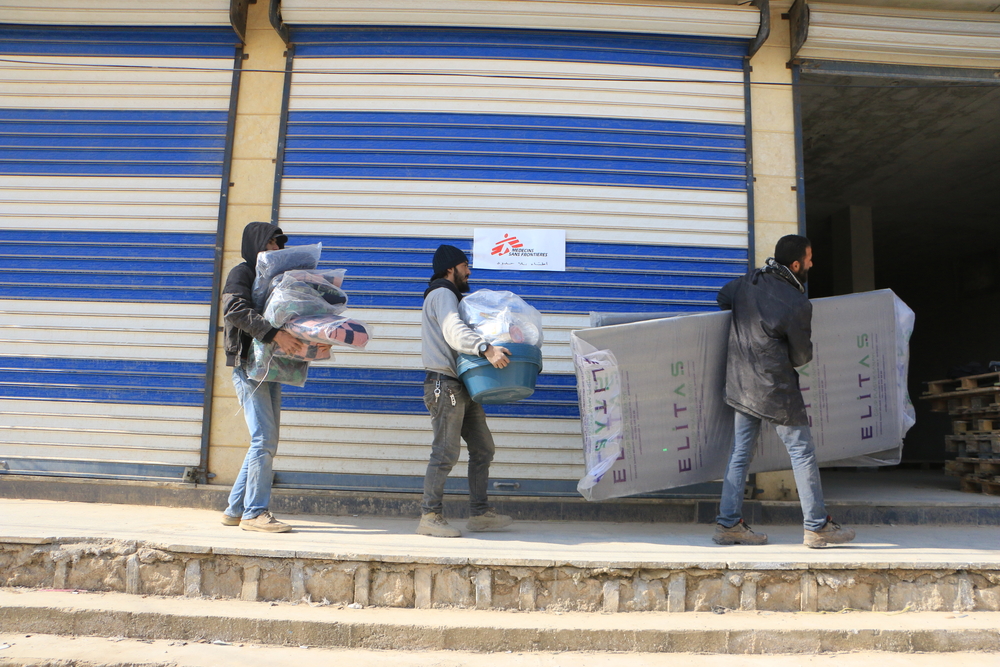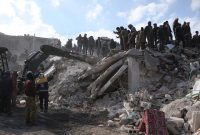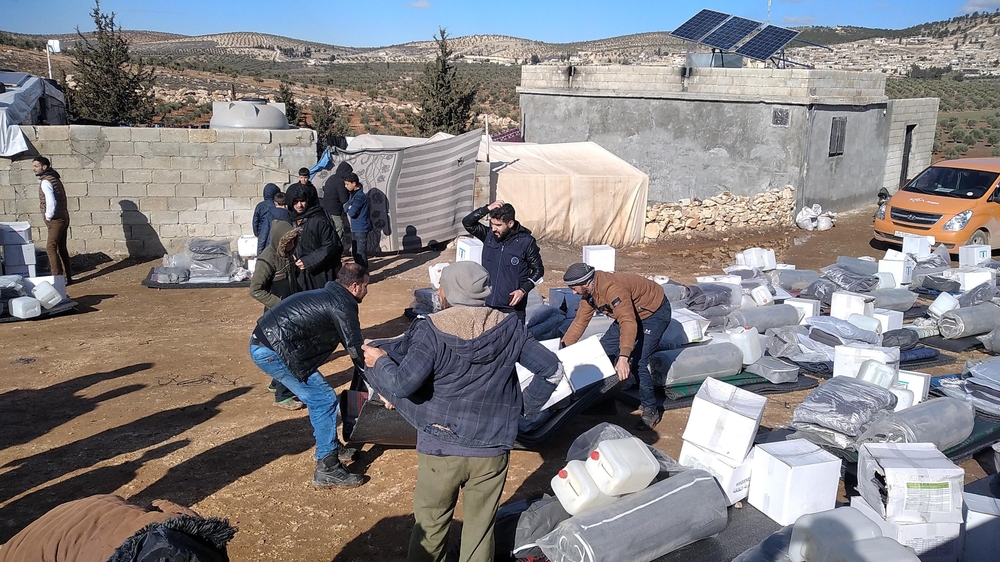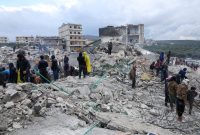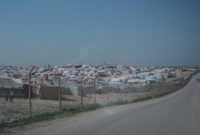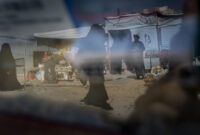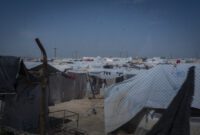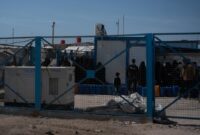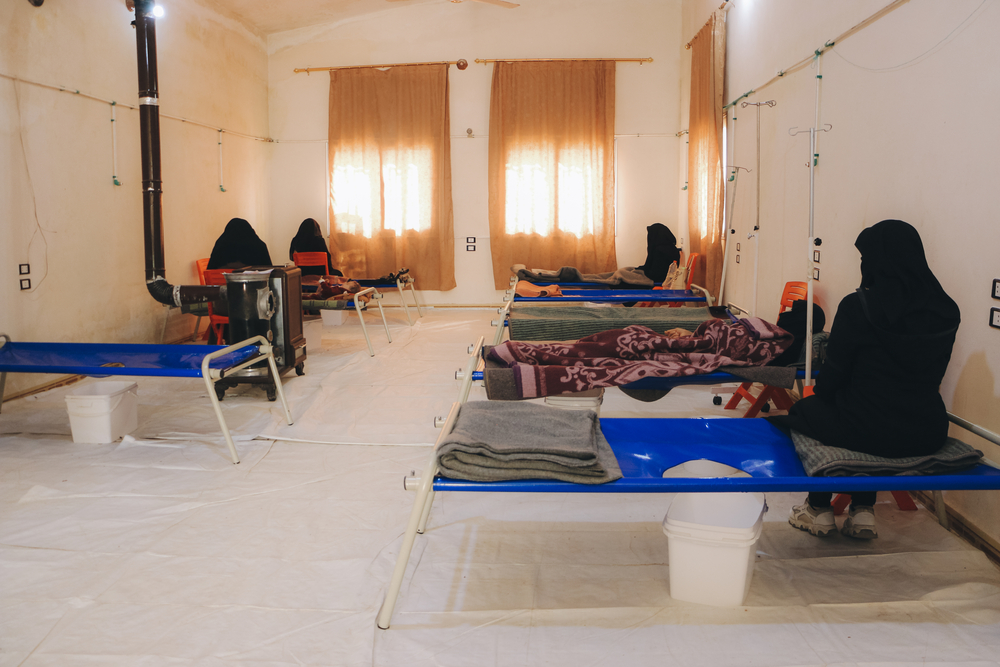Syria: MSF denounces unsafe environment in wake in staff killing in Al-Hol camp
In the wake of the killing of one of its staff members and the injury of three others in Al-Hol camp for displaced people in northeast Syria, international medical organization Doctors Without Borders/Médecins Sans Frontières (MSF) expresses its shock and sadness at the incidents and its profound concerns about the insecurity facing camp residents, two-thirds of whom are children.
During the night of February 24, a member of MSF’s team was killed in the tent in which they lived. Three days later, the child of another staff member died in an accidental fire at a wedding in the camp, in which three staff members were also injured. “During the night of February 24, our colleague was off-duty with their family when they were killed,” says Will Turner, MSF emergency manager for Syria. “We are trying to better understand the situation and circumstances around their death. MSF is providing support to the family during this difficult time and we offer our sincerest condolences to our colleague’s family and friends.”
The second incident occurred on the evening of February 27 when a fire broke out in a tent where people were gathered to celebrate a wedding after a child knocked over a diesel heater by accident.
The fire’s immediate spread
The fire spread to adjoining tents. At least seven people were killed in the blaze, including the four-year-old daughter of an MSF staff member. Around 30 people were injured, including three MSF staff members and several of their family members. Many of the injured were taken to hospitals in Al-Hassakeh city for treatment, although there is confusion around who was referred to which hospital and the total number of injuries remain unknown.
“I just want to know where my child is,” said one of the MSF staff members being treated in Al-Hassakeh, who has been unable to get information about other injured family members. “All I can think about is my family.”
Security and safety situation in AL Hol camp has been unacceptable for the past two years. This year the situation has deteriorated further, with more than 30 killings since January. Most of those killed were targeted by gun violence, with others caught in crossfire, killed in knife attacks or dying in avoidable accidents.
In the second half of January, four gunshot victims, including a mother and child, were received at an MSF clinic in the camp that treats malnourished children, in two separate incidents of gun violence.
MSF temporarily suspends outreach activities
As a result of the worsening security situation in Al-Hol, MSF has been forced to temporarily suspend its outreach activities within the camp, including providing medical care within people’s tents and some water and sanitation activities.
The recent tragic incidents demonstrate the human toll of the violence and unsafe living conditions experienced by camp residents. Al-Hol is under the control of local authorities and security forces who prevent most residents from leaving the camp’s perimeters.
“People are being killed with a brutal frequency, often in the tents where they live,” says Turner. “Many of those killed leave behind children who have no one else to take care of them. The authorities have a responsibility to provide people with safety and security at all times. This is not a safe environment and certainly not a suitable place for children to grow up in. This nightmare must stop.”
MSF calls on the international community and countries with citizens in Al-Hol camp to take responsibility to find longer-term solutions for people living there – solutions which must be voluntary and in line with international legal norms, including international humanitarian and human rights law.

